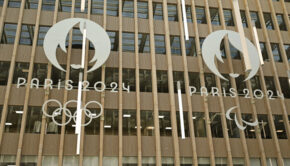Tokyo 2020: What to do about fans?
Published on July 2nd, 2020
It was before the Tokyo 2020 Games were postponed when we published Tokyo 2020: Let the show go on (March 5, 2020) during a time when the International Olympic Committee (IOC) was determining how to host the competition amid the threat of the COVID-19 disease.
As the concern with Tokyo 2020 was the mass of people from around the world coming together, we asked why not just eliminate the spectators. With something like 11,000 athletes competing, they aren’t nearly the issue as compared with an estimated 600,000 tourists from around the world set to descend upon Tokyo.
As the Olympic Games has become a “made for television” event, with the Rio 2016 Olympics attracting 3.6 billion viewers, we thought that postponing or cancelling the 2020 Games to protect 2/10000 of interested parties required a better solution… like not allowing spectators.
Now four months later, and following the decision on March 24 to postpone one year, guess what is being suggested by the IOC? Limiting spectators. Here’s the report by Liam Morgan from InsidetheGames:
Practically every update from the International Olympic Committee (IOC) and Tokyo 2020 on the postponed Olympic Games provides more questions than answers.
Non-committal answers, and the frequent use of the phrase “it is too early to speculate”, have become even more frequent features of press conferences given by the powers-that-be at the IOC and the Organising Committee since the decision to delay the Games by a year was made in March.
This is understandable in some ways given the mammoth, never-before trodden journey the IOC and Tokyo have ahead of them in the next 12 months or so, but uncertainty triggers such speculation.
In the absence of details – save for the weekly leak to certain Japanese media – it has been left to the press and others to ponder what exactly Tokyo 2020 might look like next year.
One area of interest is whether fans from across the world will be able to attend the Games, rescheduled to run from July 23 to August 8 in 2021.
It has been widely suggested that a reduction in spectators is among the COVID-19 countermeasures being considered for Tokyo 2020, while more radical claims of a behind-closed-doors Olympics if social distancing remains the norm have not been entirely dismissed.
“There are other people in Japan as well that (believe the Olympics) need to take place behind closed doors,” Tokyo 2020 chief executive Toshirō Mutō said in May. “However, our point of view is that we have more than one year until the Games take place, and we think it’s too early at this point in time to have that discussion.”
Mutō’s comments followed an interview IOC President Thomas Bach gave to the BBC, where he said holding the Games without fans “was not what we want” while stopping short of ruling it out completely.
Such is the concern over the coronavirus pandemic and the general precariousness of the global health situation that it is difficult to foresee a scenario where the world has fully recovered by the time the Olympics come around.
Providing a safe and secure environment for everyone involved in the Games may be a prerequisite, virus or no virus, but has taken on added importance because of the COVID-19 pandemic and is one of three central principles for the event recently outlined by organizers.
With that in mind and viewed through a pessimistic – some may say realistic – lens, it is hard to imagine fans of all nations flocking to the Olympics in the Japanese capital, particularly in the absence of a vaccine for COVID-19.
As sad as it may be, especially for athletes, it is hard to picture packed stands draped in color, passion and fervor as the sport unfolds in front of them.
Ignoring the jokes about Rio 2016 unfurling in front of a reduced number of spectators, how fans can be incorporated into the first Olympics to be postponed in history poses a somewhat unique challenge for the IOC and organizers.
Limiting those in attendance to natives of the host country is one idea to have been mooted, although even that poses a risk if, as is happening in Tokyo at the moment, there is a spike in coronavirus cases.
It is also easier said than done. How would Tokyo 2020 decide who is able to go? Would organizers have to hold another lottery or ballot?
These questions would have to be considered if a smaller-than-planned number of international spectators can attend. Had the Games been held this summer, Tokyo 2020 was expected to have sold around nine million tickets worldwide.
Even a year from now, there may be those who do not feel sufficiently confident to travel to the Japanese capital from overseas, and it is feasible demand to be part of Tokyo 2020 may have decreased in light of the coronavirus crisis.
That will be a concern for the IOC, Tokyo 2020 and authorized resellers alike as ticketing for the Games is a considerable revenue generator.
Fans being inside venues is also important for broadcasters, considered the group the IOC is most keen to appease.
Swathes of spectators adorned in flags, face paint and other patriotic costumes, cheering at full voice as their athlete comes into the home straight or lands a vital point-scoring blow, makes great television.
“Because the Olympic spirit is about also uniting the fans and this is what makes the Games so unique that they are in an Olympic Stadium, all the fans from all over the world are together,” Bach said.
Without fans, or even with a reduced number, a huge void would be left, one which the IOC, Tokyo 2020 and broadcasters would have to fill.
For those watching at home – still how most Olympic fans consume the Games – broadcasters may have to consider piped crowd noise, similar to what is being beamed into households across England following the resumption of the Premier League, to generate an artificial atmosphere.
You can see it now: boos as an athlete previously banned for doping wins gold, gasps as a gymnast falls off the balance beam and an audible clang as a horse clips the gate on its way through.
Athletes, the focal point of any Olympics, would be hit hardest should those involved in the Games be left with no alternative but to go ahead with the event with either a diminished number of fans or none at all.
Bach may say it is “not what they want”, but the IOC would surely prefer a behind-closed-doors Olympics, or one with a limited number of fans, to an outright cancellation, given the money at stake and the consequences of such a decision.
But an Olympics without fans, or with less spectators than we are used to, would not be anywhere near the same.
Tokyo Olympic Sailing Program
Men’s One Person Dinghy – Laser
Women’s One Person Dinghy – Laser Radial
Men’s Two Person Dinghy – 470
Women’s Two Person Dinghy – 470
Men’s Skiff – 49er
Women’s Skiff – 49erFx
Men’s One Person Dinghy Heavy – Finn
Men’s Windsurfing – RS:X
Women’s Windsurfing – RS:X
Mixed Multihull – Nacra 17
Original dates: July 24 to August 9, 2020
Revised dates: July 23 to August 8, 2021









 We’ll keep your information safe.
We’ll keep your information safe.